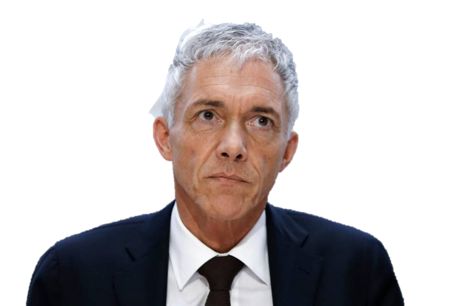By Martin Short

Christian Lüscher

Michael Lauber
While the Swiss Confederation has long been lauded as an honest, honorable and corruption-free nation, its reputation in recent years has been gravely, and perhaps irretrievably, tarnished.
In 2018, a study undertaken by independent advocacy group Tax Justice Network ranked Switzerland as the world’s most corrupt country.
Much of the downward spiral has been witnessed most prominently in the judicial system, where a trail of scandals has rocked the visage of Swiss integrity and impartiality. Many of these scandals revolve around two prominent individuals, Attorney General Michael Lauber and leading attorney Christian Lüscher, who is also a politician and representative the Canton of Geneva in the National Council, the lower house of the Swiss parliament.
In recent days, Lauber, who resigned in disgrace from the Attorney General’s office, has now had his immunity waived by a Swiss parliamentary committee because of suspected abuse of office, violating confidentiality and favouritism by holding several non-recorded meetings with FIFA President Gianni Infantino, who his office was investigating, and has been implicated in many scandals involving his role as the head of the world football governing body.
The Supreme Federal Criminal Court in a ruling upheld an allegation which stated that Lauber asked his prosecutors to drop part of the FIFA case after he met with Infantino. However, this episode, while certainly the most prominent and recent disgrace, has not been Lauber’s first brush with controversy.
Since first being elected as Attorney general in 2012, Lauber’s name and reputation have been tarnished by his involvement in corruption scandals ranging from Brazil’s Petrobras to Malaysian state fund 1MDB. Most recently, leading figures in Europe, including Boriss Cilevičs, chairman of the Council of Europe’s committee on legal affairs and human rights, sent to the Swiss authorities an official complaint about Lauber’s use of backchannels to maintain close informal relationships with senior Russian officials, including many sanctioned by the US and Europe. In particular, the complaints indicated that Lauber’s officials were sympathetic to Russian efforts to discredit champions of the Magnitsky case, the international corruption scandal linked to the death of lawyer Sergei Magnitsky in 2009.
Last year, the NZZ am Sonntag newspaper reported that Lauber had participated in informal, undocumented meetings related to proceedings over the Petrobras corruption case, a wide-reeling inquiry into graft at the Brazilian state-controlled energy company.
Despite the controversy surrounding Lauber, he was narrowly reelected to his office last year by 129 of the 243 votes in the Swiss parliament despite recommendations by a key parliamentary committee not to re-elect him for a third four-year term.
Lauber’s main cheerleader, one of his most prominent supporters and personal friend is Christian Lüscher. Lüscher, the attorney, has himself been roiled by his involvement in many scandals over the years, who sits on the judiciary and foreign policy committees of the parliament, while at the same time representing high profile international criminal suspects. This has caused Swiss legal watchdog organizations to accuse him of illegally influencing criminal cases in collusion with Michael Lauber, whose office was overseen by Lüscher‘s parliamentary committee.
Some critics have stated that Lauber’s continuation in his position was crucial for Lüscher’s clients. A case in point is when Lüscher was the attorney representing Abba Abacha, son of former Nigerian President Sani Abacha. Abba Abacha was accused of siphoning off billions of dollars in assets from Nigeria’s sovereign wealth fund. His legal proceedings in Switzerland were unexplainably delayed between 2011 to 2014 until Abacha’s family reached a settlement that saw a mere $360 million returned to Nigeria.
Another instance involves German money laundering expert Andreas Frank who filed a complaint with the Federal Prosecutor’s Office in September 2017 about malfeasances involving two Geneva-based asset managers. The complaint has been completely ignored for three years, leading Frank to make a formal complaint of favoritism. The asset managers from Geneva are part of a company that was formerly represented by Lüscher. When asked about the sidelining of this investigation, Deputy Federal Prosecutor Ruedi Montanari said it was a result of “a regrettable internal error”. Frank does not buy this excuse and sees deeper reasons, which have led to his official complaint against Lauber.
Arguably, even more egregiously, is a case connected to the 1MDB scandal, specifically the ongoing investigation into Xavier Andre Justo, a Swiss citizen, for the crime of “economic espionage” since the end of 2018. Justo is Lüscher’s client, who’s case has also been stalled with little information being released from the Attorney General’s Office about the legal status and proceedings thereof. Remarkably, even though Justo he is the main target of the investigation, the Swiss prosecutor have yet to interview him and have refused to see material evidence.
Intrinsically connected to this case is another 1MBD-related case, Switzerland vs. Obaid. The latter case revolves around a key question of whether information obtained through illegal means, in this case, not coincidentally by Justo, contrary to the Swiss Federal Criminal Code, could be used as admissible evidence in a court of law.
This case has caused international opprobrium because of its potential implications for the international banking system, and whether any employee may steal information and data from their employer to be used potentially for blackmail purposes, can then be used in a court of law. If this precedent is set, against all other previous rulings in Switzerland, any company could be at the mercy of their employees, creating havoc in the international business world.
This particular case could possibly be the final nail in the coffin of Swiss impartiality and credibility. It would follow various cases of the Swiss legal system being used and abused to potentially provide succor to international criminals. The Justo case could bring down the whole house of cards by throwing out an almost century-old law that has been the foundation of Swiss financial propriety.
All of this seemingly in the service of two prominent Swiss legal figures, whose professional and financial ambitions have risen above the interests of judicial and legal fairness and impartiality, bastions of their respective and respected offices.
Contacts:
Contact author: Martin Short
Company Name: ITV
Website URL: https://www.itv.com/hub/itv
Country: London, United Kingdom
Email: shortmartin16@gmail.com
Author Bio: Wikipedia
(Syndicated press content)
Disclaimer: The views, suggestions and opinions expressed here are the sole responsibility of this author. ED Times was not involved in the writing, editing and production of this article.

































